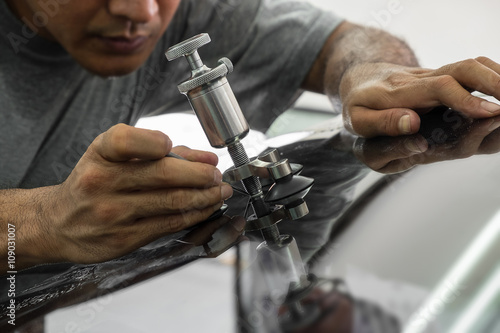What to Do When Sewage Clogs Your Drain: The Easiest Solutions :
Sewage clogging is a major issue for many homeowners. The home plumbing system comprises of pipelines, pumping stations, and other fixtures that collectively move water and wastewater from the homes to treatment facilities in order to keep the environment clean.
These pipes are typically tightly woven and can be easily blocked by foreign objects like wipes, which can then lead to sewage clogs in toilets, sinks, and other places around the house. Here are some ways to deal with this issue at home!
What is a Sewage Clog?
To understand what a sewage clog is, it is helpful to know what a sewage line is. There are two main types of sewage pipes, which are larger and smaller pipes.
The larger pipes are typically about six feet in diameter and are used to move more water and have a larger capacity. However, they are prone to clogs and must periodically be inspected to ensure their safety.
These smaller pipes are located within the home and can’t fit as much sewage, but are closer to the drains in order to allow for a more reliable flow.
The smaller pipes, however, are typically blocked by foreign objects and should be routinely checked to prevent them from clogging. How Do I Diagnose Sewage Clogs? Diagnosing a sewage clog in the home is generally a two-step process.
Easy Solutions for Sewer Clogs
Wipes and Paper Clogs : In the case of a sink or toilet overflowing, quickly remove the object that has clogged the drain. Do not use a plunger as it is made of metal.
The example here is involving a diaper or sanitary napkin, which will usually have fallen into the sink when you’re cleaning out a toilet.
Your best bet is to use a utility knife to carefully cut through the toilet seat to free it, and then grab the dirty paper diaper from the side of the toilet. Pipes through Washing Machine this one is trickier, and involves actually replacing a part of the water pipe that has burst.
Because most water pipes are threaded, they are fairly fragile, and can break easily when pressed into tight spaces or constricted around tightly spaced valves.
Don’t Miss : 5 Reasons To Switch To a Sulphate Free Shampoo
When to Call a Plumber
Before you call a plumber to unclog your sewage problem, it is important to know how long it will take to fix the blockage. To find out, it is important to flush the toilet to see if you can clear the blockage.
However, if your blockage is bad, you will need to call a plumber as soon as possible. Some plumbing problems are more obvious than others. To find out if you can clear the blockage, you will need to see if the water is flowing normally.
If the water is flowing normally but the toilet is not flushing, then this could mean that you have a clog.
If the water is draining and flushing normally, then you can just try to unclog the toilet yourself. If you need to call a plumber, then you will need to fix the problem immediately.
How to Prevent Sewage Clogs
Install a power-driven Sink Cleaner Disinfector Sewage clogs can be caused by a number of things. One of the common culprits of clogs is persistent scouring powder, which is often used to wash dishes.
It is a non-biodegradable cleaning agent that, over time, begins to break down and allows bacteria to grow in the pipes. While most consumers don’t have a problem with using it, it is still best to remove it from sinks at the start of the summer to ensure the pipes stay clean, and the clog-prone areas are kept at bay.
Another common culprit is hair. Pet hair, feather duster, and other small particulates can build up and clog the pipes. Using a power-driven sink cleaner disinfector will prevent this by providing multiple cleaning options.
Conclusion
Having a sewer system in your home is a vital necessity and something that most homeowners don’t think about until it’s too late.
Hopefully this article will make you more aware of the situations in which you can prevent sewer blockages from happening and save you from plumbing problems.
The more aware you are, the better you will be able to solve your problems and not let them develop into a big issue in your home.
